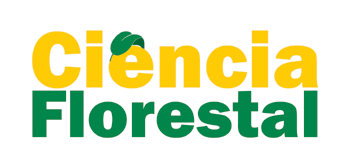ABSTRACT
The objective of this work was to evaluate species “timbauva” (Enterolobium contortisiliquum), “canafistula” (Peltophorum dubium) and “cedro” (Cedrela fissilis) in direct sowing, in unproductive areas. Efficiency of shelter utilization at the sowing point was tested and compared to initial vegetation cover management by herbicide application at the sowing point, opposed to manual weeding. Sowing was made in points distanced 1 m in 2.5 m spaced rows. The following variables were evaluated: emergence, survival and number of points with at least one plant, until seven month after sowing. Results allowed to conclude that the native species “timbaúva”, “canafístula” and “cedro” have potencial to be used in the direct sowing method in unproductive agricultural áreas. Shelter utilization favors initial establishment of “cedro” plants, especially by contributing to lower inicial mortality. Early weed control by a chemical dessecant, at the sowing date, allows for an initial higher plant population of “timbauva” and “cedro”.
Key words:
reforestation; native species; herbicids; improvement of exhausted areas
